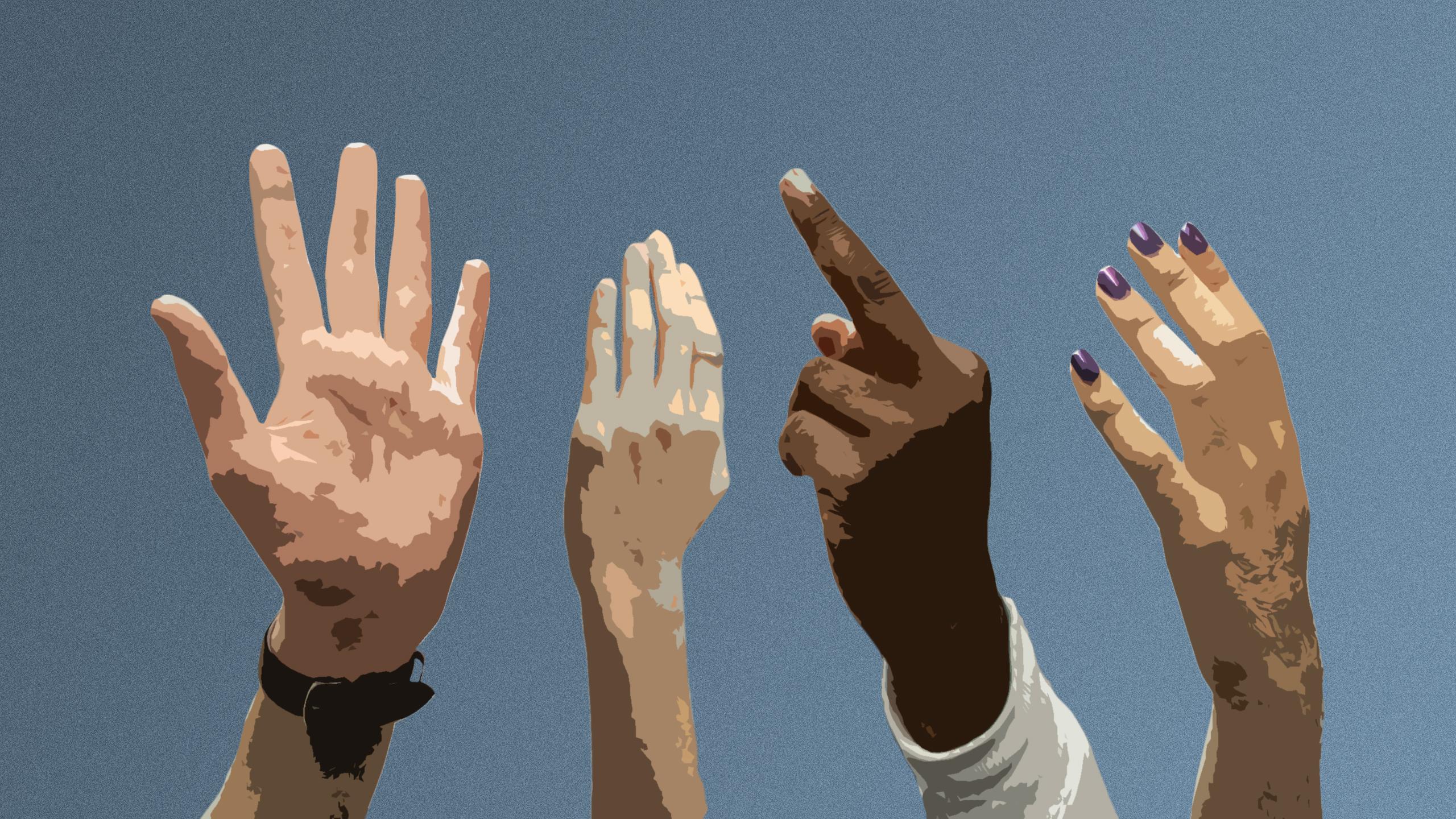By Sarah Krichel
In my second year in Ryerson’s journalism program, a professor told me that I shouldn’t be a journalist, and that I “don’t belong at Ryerson.”
It was because of a mistake on an assignment. But still, I don’t think that making a mistake calls for being labelled by an established journalist as unbelonging.
I struggled a lot that year. Academically, financially and mentally. I wasn’t perfect, but I’ll never forget how unimportant I felt to that prof. He couldn’t care less about my experiences. As I cried in his office about my stressors and mental state, he stared, his eyes in disbelief, continuing to chew his sandwich with an open mouth. As if I hadn’t just laid out my entire personal life to him in hopes of gaining just a little understanding.
Words like “I don’t believe you” and “you don’t belong”—while I knew weren’t true—still stung. I internalized the idea that because a white man told me something, it just had to be true. For years after that, even with increased confidence, it still triggered my insecurities and humiliation when I saw him in the halls. I think it still would if I saw him now.
We’ve all had moments when we’ve felt disrespected or dismissed by authoritative figures. Profs are meant to be there to help us on our way to success—not actively dismantle our path to success. For you, it may look like hypocritical diversity lectures, transphobic teachers or just plain disrespect. Each case is unique.
If you’ve been through it, you know the feeling when you’re about to call someone out: the anger, the racing heart and questioning everything the second before opening your mouth.
This week, our Arts & Culture editor wrote an editorial, inspired by his own experience and about how to effectively and safely call out your professors. The piece gives you tips on how to deal with the anxiety-inducing experience, especially when you stand alone. On top of that, professors are also human—and humans tend to go into defence mode when challenged (when profs should, arguably, be happy you’re learning to challenge authority more).
For people of colour, women, queer, trans and non-binary folks, it’s even worse. We’re used to not being believed in and working harder than everyone else to accomplish the same thing while tolerating hateful rhetoric we hear around us.
This is my reminder to you students, especially fellow young people of colour on their way to success, that if you feel like you should be calling someone out—do it.
No matter where you are in life, and no matter how much power anyone has over you—you’ve always had the authority to call someone out on hatred, ignorance or stupidity.
The real problem was I didn’t start off thinking I had that authority. It took me a long time to think of my self-worth and speak up for myself. Accomplishing things in my career helped with the confidence boost, but I should’ve known from the beginning that my perspective has always been valid.
The prof who told me I shouldn’t be a journalist was a former National Post columnist. The following summer, my byline was featured numerous times in that same newspaper. Despite me loving that, proving him wrong was just the cherry on top. It started with me.












Leave a Reply